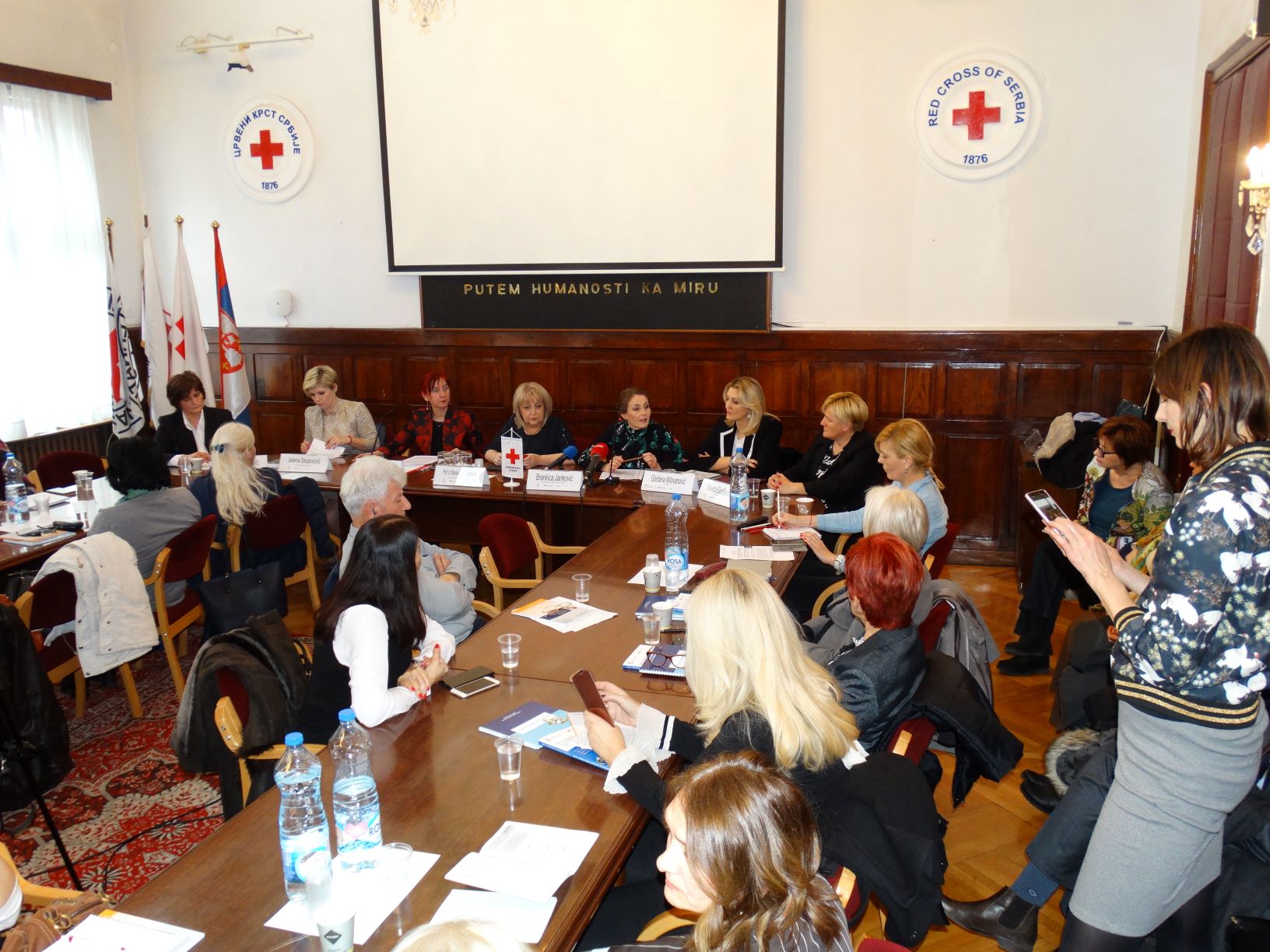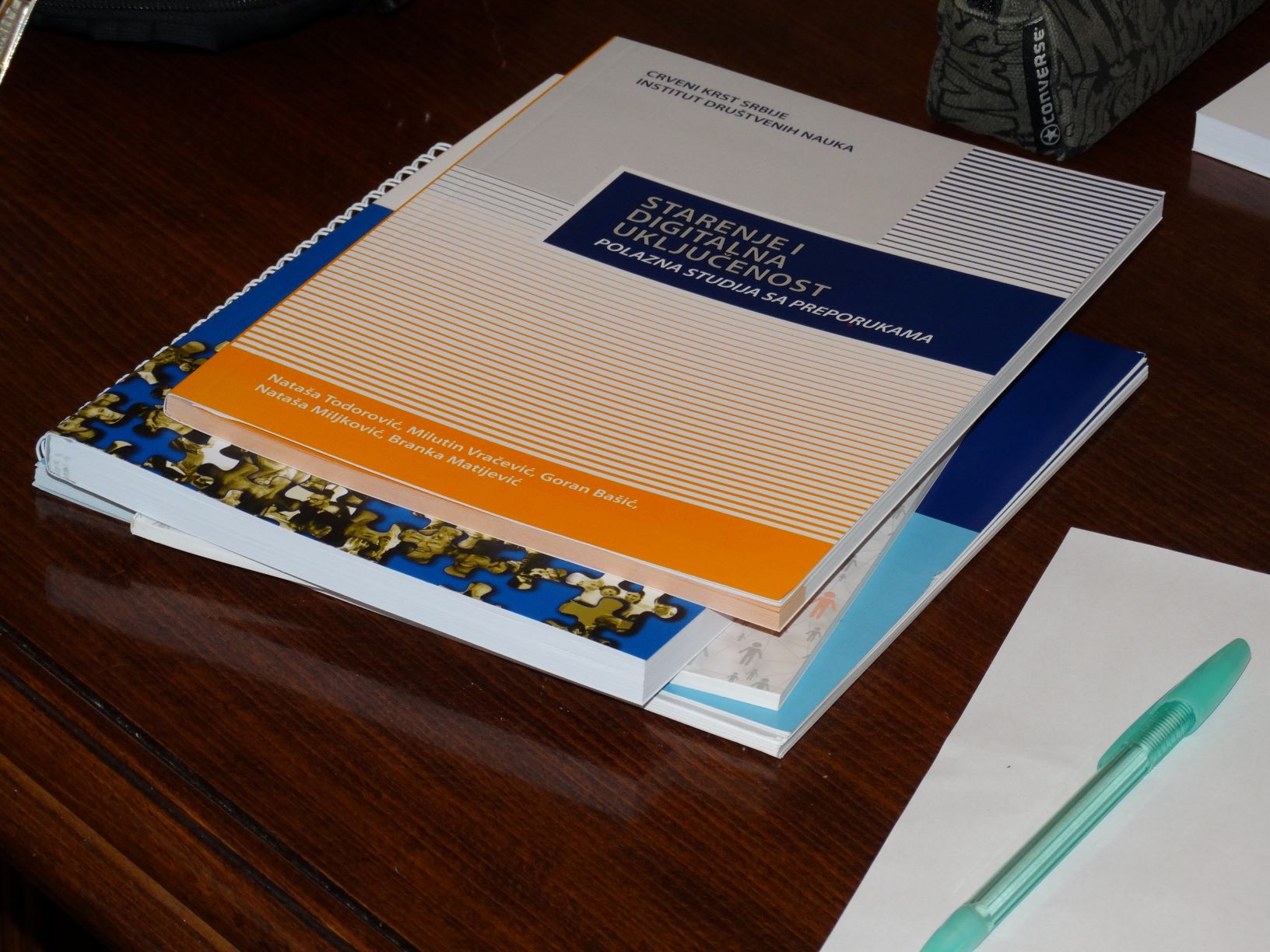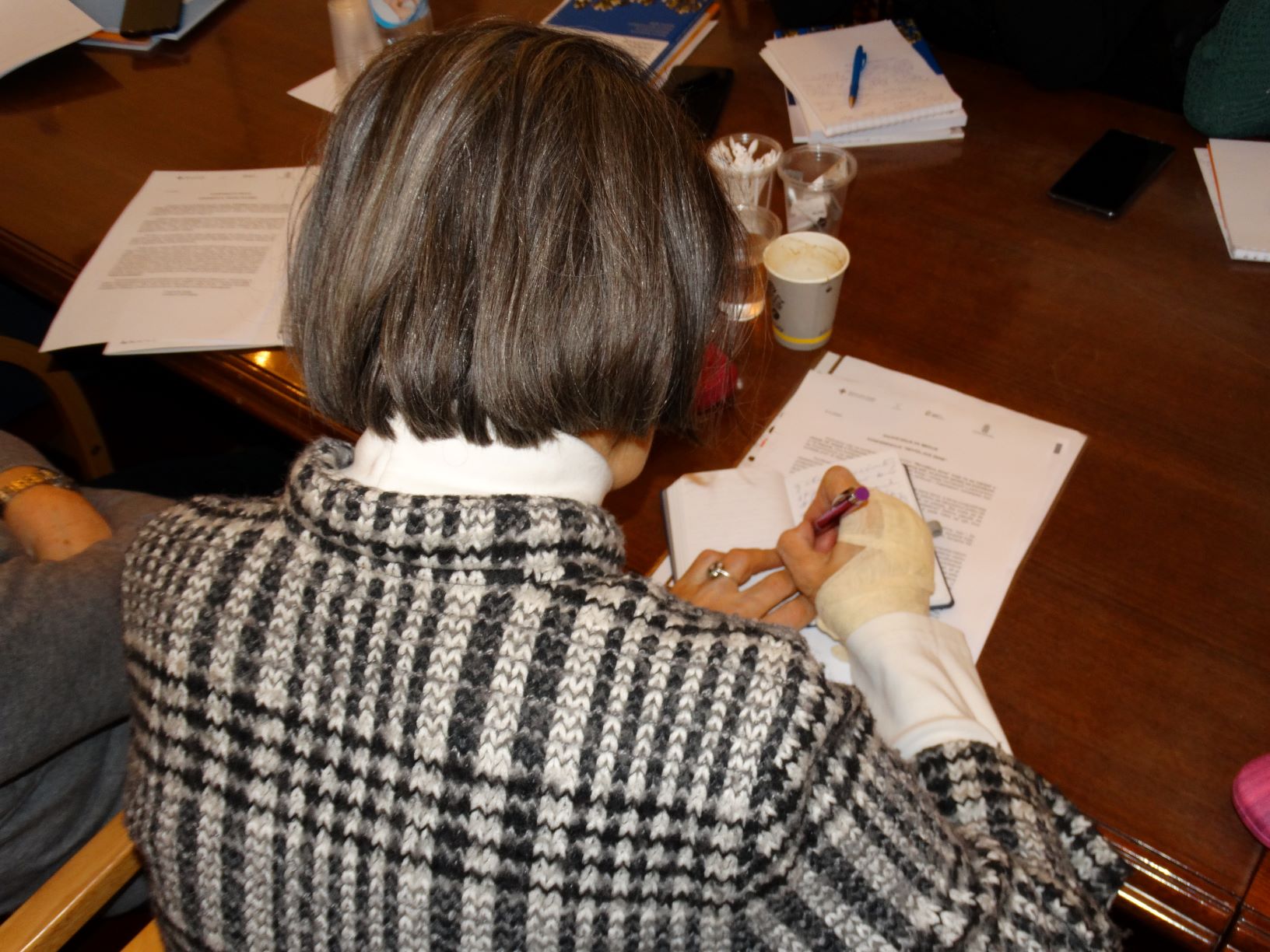Conference: Invisible Women – Marking of the International Women’s Day

In the Red Cross of Serbia on 10 March 2020, a conference was organised, entitled “Invisible Women”, to mark the International Women’s Day, this year under the slogan “Each for Equal”. The Conference was organised by the Red Cross of Serbia and HumanaS network and in partnership with the Commissioner for Protection of Equality and the Cabinet of the Minister Without Portfolio prof. Dr Slavica Djukic Dejanovic, in order to increase the visibility of, above all, older women and find the answer to the question: What needs to change to ensure older women live equal to everybody else? The Conference aimed bring attention to the women who fought for our rights and today some of them live forgotten by their children and the society. It was about shining a light on some forms of discrimination targeting older women and speaking about Gender Equality through 5th Sustainable Development Goal, speaking about women suffering from dementia, older women who are informal caregivers and all other women whose work and contribution to the society is frequently overlooked.
The Minister Djukic Dejanovic in her address spoke that the topic of invisible women is not only very timely but is also “a call for all of us to increase our efforts manifold”, and reminded the audience that according to the UN statistics, one in three women experience some form of violence in their lives, while women’s work in the household is not recognised even though on the average, a woman will spend there five hours per day working. The Minister also pointed out that women are invisible when they are subjected to abuse, threats and harassment which happens daily in our society. The Minister emphasised that older women living in rural areas belong to a specially vulnerable population because they are frequently lonely, live in poverty, healthcare is inaccessible to them and their children live away from them.


The Commissioner for Protection of Equality, Brankica Jankovic spoke about women being in indisputably worse position than men in the society, in every area of life pointing out especially to the older workers, especially women among them, as especially vulnerable to discrimination, especially those over 65 who are mostly deprived of their rights related to healthcare and social protection and access to public services. Gender based discrimination is, according to the Commissioner’s records, second most frequent form of discrimination according to the number of petitions and women are gender-discriminated mostly in the labour market – 45%, with 44% also being discriminated based on age – all this showing the considerable gender gap in the area of labour and employment.
The Red Cross of Serbia representative Natasa Todorovic called for solidarity among women, for promotion of equal rights throughout the life course, while including men and boys in this struggle for equality, the time being right now. She reminded the audience that the pensions of older women are on the average lower than men’s pensions because women have worked for lower wages and this points out to the discrimination that they have been exposed to all their lives and it is only amplified in their older age as there is a lot of negative and dismissive talk about older persons in the media, especially the advertisements. In all categories of pensions, women receive lower amounts on the average and there are jarring gender differences in terms of material deprivation. Older women are more materially deprived than older men but also more than other categories of women. The data shows that older women living in rural areas are in especially difficult position, often made worse by the fact that they are not owners of the property where they live: 88.5% women in Serbia live in houses owned by their husbands. In a 2019 research study it was also shown that 76.7% of all involved informal caregivers are women, with 23.1% of the sample being older women. The oldest informal caregiver in the sample was 84 years old.

Deputy Ombudsman, Jelena Stojanovic spoke about the generations of older women who are not sufficiently informed about existing mechanisms to protect their rights so, due to the deeply rooted prejudice and stereotypes in our society, they are not even aware that their rights are being violated. She also talked about the common problems older women face: poverty, abuse and neglect within their families, use of their property without their consent, as well as difficulties in accessing public services when in need. In the end she asked: How did we, after fighting for equal rights, labour conditions and the right to vote, make such a step back that today we fight for their mere right to exist?
Gordana Milovanovic of the Centre for Support and Inclusion Help Net spoke about informal caregivers whose work is also largely invisible for the wider society and large majority of whom are women.
Slavica Stankovic, representing the Christian humanitarian organization Bread of Life spoke about lonely older women living with dementia and the ways the civil society and the society at large can help these women, support them to live in dignity and protect them from abuse.
Slavica Djurdjevic, foster person from Boljevac represented all those women doing highly responsible work by providing foster care for children with difficult childhood and who, thanks to these heroines and heroes had gotten another opportunity to live in a family.








